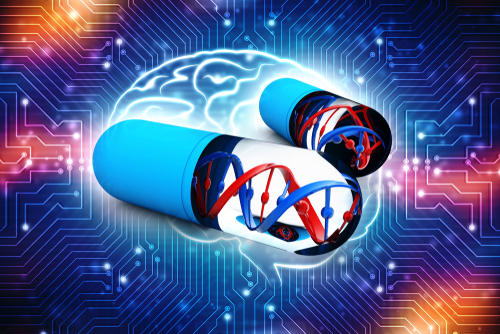Neurogene’s Gene Therapy for CLN5 Named Orphan Drug by FDA
Written by |

The U.S. Food and Drug Administration (FDA) has designated Neurogene’s gene therapy, which aims to deliver a working copy of the human CLN5 gene, an orphan drug to possibly treat CLN5, a form of late-infantile Batten disease.
Orphan drug status helps to encourage therapies for rare and serious diseases, through benefits such as seven years of market exclusivity and exemption from FDA application fees.
“Receiving Orphan Drug Designation from the FDA is an important regulatory milestone, and we look forward to advancing our gene therapy program into the clinic,” Rachel McMinn, PhD, Neurogene’s founder and chief executive officer, said in a press release.
Batten disease, also called neuronal ceroid lipofuscinoses (NCL), is an umbrella term for rare inherited neurological conditions caused by mutations that impair cells’ ability to get rid of waste products.
This leads to the buildup of toxic deposits composed of fats and proteins, called lipofuscins, across the body, particularly in nerve cells in the brain and cells of the eye.
Neurogene’s gene therapy uses an adeno-associated virus (AAV), a harmless virus not known to cause disease and effective as delivery vehicle because it easily enters cells. Advances in AAV vector design have shown these vehicles can enable widespread gene delivery in the brain and spinal cord, making them particularly useful for neurological diseases.
The company’s CLN5 gene therapy is currently at an investigational new drug enabling phase, meaning it is going through the multiple studies necessary for regulatory permission to begin clinical trials in patients.
CLN5, along with other types of late infantile Batten disease, is characterized by seizures, progressive deterioration of motor skills and cognitive ability, loss of vision, and premature death.
While the exact function of the CLN5 protein is unclear, previous preclinical studies have suggested its role in the metabolism of fats and in the maintenance of myelin, the fat-rich substance that wraps around nerve fibers (axons), as well as in the transport of proteins.
More recent preclinical evidence has shown that the loss of the CLN5 protein — due to mutations in the CLN5 gene — impairs the production of new fully functional neurons. It also increased neuronal inflammation in mouse models of the disease.
Neurogene is focused on CLN5 and CLN7, another rare, late infantile and rapidly progressive Batten form, caused by defects in the CLN7/MFSD8 gene.
To better understand the course of both CLN5 and CLN7 disease, Neurogene has sponsored a natural history study (NCT03822650) that is running as part of a collaboration between the company and UT Southwestern Medical Center.
Its aim is to investigate the clinical signs and natural progression of symptoms in both late-forms of Batten disease. As an observational study, no medication is administered.





